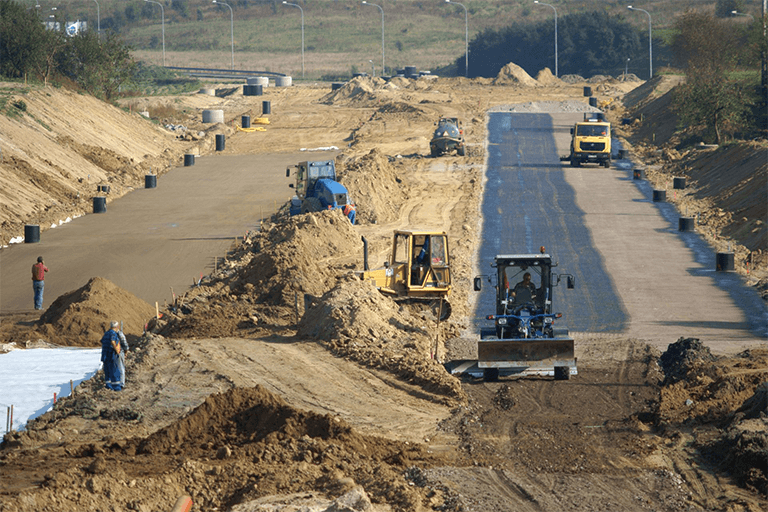How To Handle Common Construction Claims
Construction projects are often complex and physically demanding, often exposing workers to situations that can result in costly accidents. When these accidents or mistakes happen, claims are filed—do you know how to handle them?
Claims can be difficult and expensive to resolve without proper planning. As such, construction professionals can find themselves missing their project completion date as they become trapped in an exhausting and lengthy litigation process.
We’re here to help. In this article, we’ll take a look at the solutions available to you to ensure you know how to handle construction claims efficiently.
Common Causes of Construction Claims
A claim is one party requesting that another provide compensation—which is typically additional payment or a time extension requisition—for damages they caused. This is usually due to the other party failing to fulfill their contractual obligations.
In construction projects, a claim can be caused by several factors such as:
- Errors in design
- Project delays
- Disputes regarding the contract or construction work in general
- Unforeseen circumstances (i.e. weather delays, natural disasters, or a pandemic)
- Poor or sub-standard project management
- Accidents or injuries
- Employee misconduct
- Late building permits
These instances often affect the cost, schedule, work performance, safety, and overall quality of work on a job site. They also impact the contract terms to account for any adjustments that must be made to complete the construction project.
While some claims might be unavoidable, by taking a proactive approach to managing them, you can minimize the time and effort it takes to resolve them. Understanding the nature of the following construction claims will help you keep your projects on track:

Delay Claims
A delay claim is a common occurrence in construction sites. This happens when a project exceeds the deadline stipulated in the contract.
Though some causes, such as harsh weather conditions or natural disasters, are unavoidable, you will still be held liable for expenses incurred by the delay. Construction delay claims are also likely to happen if you fail to notify your client beforehand or do not take appropriate and reasonable steps to mitigate damages.
How to Handle Them
Construction delays aren’t always preventable, but one way to avoid a delay claim is by maintaining clear and defined lines of communication with your client. Open communication allows for easy negotiation on scheduling conflicts, especially if an unforeseen circumstance arises that will impact the project’s timeframe.
When handling big projects, you also have to document the progress you make every step of the way. This includes keeping detailed records, timesheets, and a list of supplies, tools, and equipment ready whenever you need to provide proof that a delay was out of your control. Make sure to store your important records and other information properly.
Supply Chain Issues
This type of delay arises when materials become too expensive to buy mid-project or shipment delays occur due to a shortage of supplies.
Since a construction project is heavily reliant on materials, supply chain issues can stall or outright stop progress on a project. This type of delay is sure to anger clients, who may then file a construction claim against your company.
How to Handle Them
To prevent construction claims of this nature, ensure your contract includes planning for increases in the cost of materials and/or labour. Also, ensure you have a backup plan in case disruptions occur due to circumstances out of your control.
Additionally, you should implement an active monitoring system when it comes to tracking your supply chain. This ensures you can proactively identify risks and assess how they might impact project completion.
Differing Site Conditions
Another major construction claim involves differing site conditions. This happens when the actual job site’s conditions are different from the description indicated in the contract or as anticipated by the parties to the contract.
There are two types of differing site conditions claims:
- When the site conditions differ from the contract; and
- When the site conditions differ from normal expectations.
The first one simply means the conditions planned for a construction site materially differ from those stipulated in the contract. The second different site conditions claim involves conditions not “normally” encountered in a job site.
How to Handle Them
It’s important to conduct site investigations and surveys before creating contracts. Providing extensive information will help your clients (and other parties to the contract) manage their expectations and anticipate issues.
Injury Claims and Damages
The construction industry is filled with risks and hazards, with an estimated 40,000 workers getting injured every year just due to falls.
As such, an injury claim is often filed when the job site doesn’t follow the necessary safety standards. Similarly, construction claims are also filed when the project causes damage to third-party property or neighbouring buildings.
How to Handle Them
Your responsibility is to your contractors, subcontractors, and other parties who are working on the project with you. Therefore, you must have a working safety program designed to tackle safety issues and mitigate accidents to help you avoid claims. This includes providing training for handling tools and equipment before, during, and after use.

Project Management and Construction Dispute
Construction managers have serious responsibilities, as everything from approving work to overseeing payments falls under their umbrella.
While most are doing their best, they are also human and prone to mistakes. Poor project management often leads to misunderstandings, and other disputes could lead to litigation. Steps must be taken to prepare for and handle management-related claims.
How to Handle Them
Finding a dispute resolution to a construction claim can be lengthy and costly—the best way to handle them is to prevent them from happening in the first place.
Most disagreements can be easily avoided if lines of communication have been established and expectations have been set before creating the contract’s stipulations. Furthermore, managers should ensure they’re covering their bases with detailed notes and record-keeping to support their case should legal action be taken.
Protect Yourself From Construction Claims With Contractors Insurance
Ultimately, the best way to avoid construction claims is to have the right risk management strategy in place. This is where Contractors Insurance steps in.
We’re the #1 insurance provider for tradespeople in Ontario, providing custom-fit insurance solutions for your business. Our reliable brokers can set up insurance bundles that cover your unique needs all while ensuring you don’t pay any unnecessary riders.
Contact us today to get started with a quote!
BACK TO ALL ARTICLES 905-274-5678
905-274-5678






Leave a Reply
Required fields are marked *
Leave a Comment